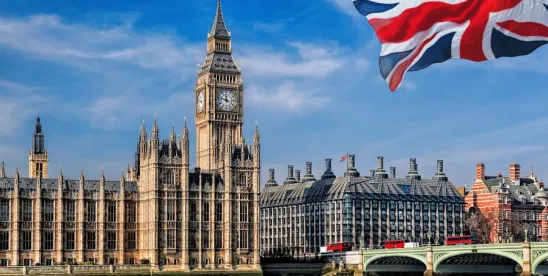On 15 May 2024 the UK Supreme Court handed down its judgement in the case of Lifestyle Equities v Ahmed (Lifestyle Equities C.V. and another (Respondents) v Ahmed and another (Appellants) – The Supreme Court) clarifying the law on the personal liability of individuals who (unknowingly) assist another (the Primary Infringer) to infringe a registered trade mark and raising the bar for trade mark owners looking to pursue such personal liability claims.
Background
Whilst the hearings which preceded this case involved a number of different trials and parties, the basic facts relevant to this Supreme Court judgment were relatively straightforward: between 2008 to 2018 Hornby Street Limited (the Company) had sold, mainly to retailers in the UK, clothing bearing various “Santa Monica Polo Club” logos. Lifestyle Equities are the owners of a various registered trade marks for “Beverely Hills Polo Club” in the category of clothing and successfully pursued trade mark infringement proceedings against the Company on the grounds of a confusing similarity between its registered trade marks and the “Santa Monica Polo Club” logos used by the Company.
However, Lifestyle Equities did not stop with the Company and also successfully pursued two of its directors, Mr and Ms Ahmed, in their personal capacity on the grounds that they had personally assisted the Company in its infringing activities. No doubt this was driven at least in part by the fact that the Company was in financial difficultly, and indeed has since been dissolved. This resulted in Mr and Ms Ahmed being ordered to pay an account of the profits which the earlier courts ruled they had received as a result of the Company’s infringing activities which was assessed as 10% of the salaries they had been paid by the Company during the period in which the infringing clothing was sold.
Liability of a primary infringer for infringement of a registered trade mark is strict, meaning that all a trade mark owner needs to do to bring successful infringement proceedings is to show that the primary infringer used a mark which is the same or confusingly similar to theirs in connection with the same or similar goods and/or services for which their trade mark is registered.
The question for the Supreme Court was whether with regard to accessory liability that is also a strict i.e. if to be liable for trade mark infringement Mr and Ms Ahmed needed to know that the activities of the Company were infringing.
Supreme Court decision
On the question of personal knowledge, the Supreme Court was disagreed with the lower courts and held that as all infringing activities (i.e. the sale of clothing bearing the “Santa Monica Polo Club” logos”) had been carried out by the Company itself rather than by Mr and Ms Ahmed personally, they could only be held personally liable for assisting the Company with its infringement if they were personally aware (or at least should have been aware) “of the essential facts which make the act done wrongful”. The justices said that no clear finding had been made at the first trial as to when the Ahmeds first became aware of the potentially infringing nature of the Company’s activities. The court also noted the fact that the logos in question were not identical. In consequence, the court held that the Ahmeds could not be held to have had the requisite level of knowledge to incur personal liability.
Comment
In its judgment, the Supreme Court has provided guidance as to when it will be obvious that an individual will have knowledge that they are assisting a Primary Infringer with an infringing activity, the obvious example given by the court being a company director who orders goods to be sold by a company which they know to be counterfeit. The court has also acknowledged that individuals must be acting in good faith and an individual who simply “turns a blind eye” to the risk of infringement will not be able to use that as justification for a lack of knowledge in order to escape personal liability.
However, in less clear-cut situations, proving knowledge may be more challenging as the Supreme Court acknowledged that in this case the logos in question were not identical, meaning there was room for argument and an honest difference of opinion as to the extent of any similarly and risk of confusion. In turn, this is also relevant to the question of whether an individual has actual knowledge as to the risk of infringement.
The Supreme Court also made clear in its judgment that the requirement for personal knowledge as to the risk of infringement applies in respect of any individual alleged to have assisted a Primary Infringer and that the court’s judgment is not specific only to individuals who are a director of the Primary Infringer.
As noted, the Supreme Court held that Mr and Ms Ahmed were not personally liable for the Company’s infringing activities, because of their lack of personal knowledge as to the risk of infringement. The court then went on to consider whether had the Ahmeds been held personally liable if the award by the earlier courts of 10% of their salaries as an account of the profits which they had received as a result of the Company’s infringing activities was appropriate or correct.
The Supreme Court again sided with Mr and Ms Ahmed on this issue, reiterating that the award of an account of profits is an equitable remedy, meaning that courts have discretion as to whether or not to award and should only do so where it is reasonable and equitable to do so by reference to the facts of a case.
Supreme court obiter comments on account of profits
The Supreme Court made clear that any award for an account of profits must be assessed by reference to the profits which a party has actually received themselves, but not profits that have been received by others (in this case the Company) and limited to profits which are reasonably attributable to the confusion caused by the infringing activity in question which may not equate to all profits resulting from that infringing activity.
In this case, the Supreme Court expressed the view that in any event, the salaries paid by the Company to Mr and Ms Ahmed were not a distribution of profits: no allegation, evidence or finding was made at the earlier trials that those salaries had been artificially inflated as a way of extracting profits from the Company. Rather, those were fair market salaries paid to the directors as ordinary remuneration for services which they had performed. In the words of the court: salary payments were “for work done, not dividends”.
Impact of ruling
As a result of this judgment, the bar for trade mark owners to successfully pursue individuals for personal liability for personally assisting a Primary Infringer has been raised. In addition to having to prove that the activities of the Primary Infringer are infringing, trade mark owners will now also need to present at least a prima facie case that any individual assisting that Primary Infringer knew (or at the very least should reasonably have known) that what the Primary Infringer was doing had the risk of being infringing. This is likely to be more challenging in cases where any potential infringement is not clear-cut. The above reiterates the importance of trade mark owners putting potential infringers and any individuals they suspect of assisting them on formal notice of any alleged infringement as soon as possible whilst at the same time ensuring they do not stray into the territory of standing accused of making actionable unjustified threats of infringement.
Where individuals are pursued who have been renumerated by the Primary Infringer solely by a (fair market) salary or there is otherwise no clear payment of profits generated from the infringing activity direct to an individual, trade mark owners may now also consider a damages as opposed to account of profit claim to be preferable in light of this ruling.





 />i
/>i

